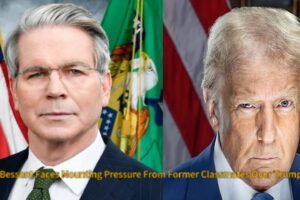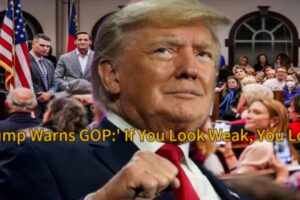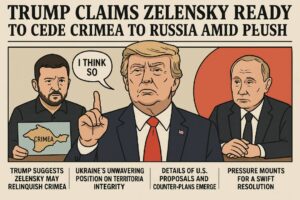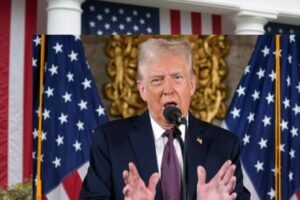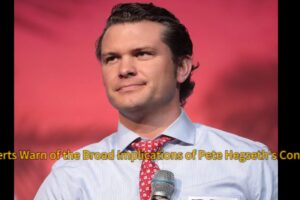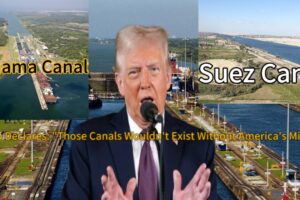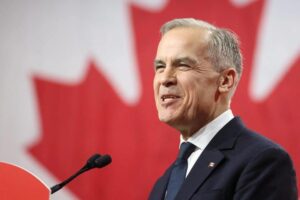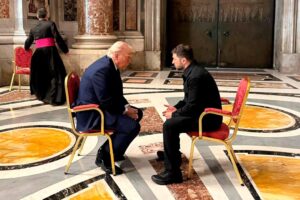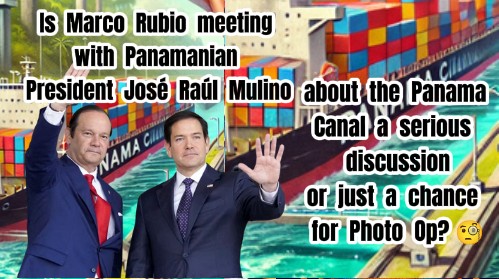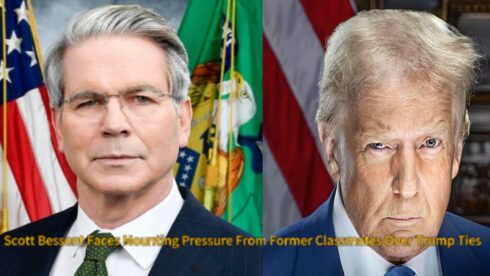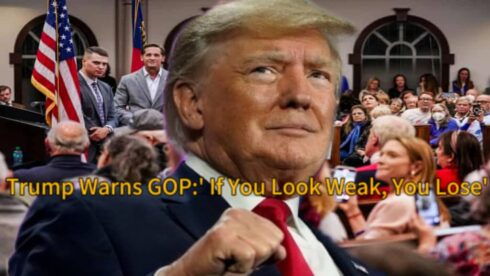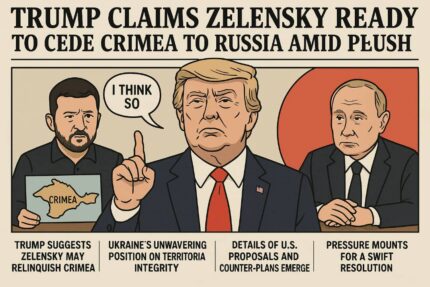U.S. Secretary of State Marco Rubio has demanded that Panama make “immediate changes” to what he describes as China’s growing “influence and control” over the Panama Canal. Marco Rubio‘s remarks come in the wake of former President Donald Trump’s vow to retake the canal, a move that has stirred significant political tensions between Washington and Panama City.
Marco Rubio, who met with Panamanian President José Raúl Mulino on Sunday, emphasized that failure to curb Beijing’s presence near the critical trade route could prompt the U.S. to take necessary measures under existing treaty agreements. While Mulino downplayed the possibility of U.S. military intervention, he proposed technical-level discussions to address concerns over Chinese investments in ports and terminals near the canal. Despite these assurances, Trump’s call to reclaim the canal has fueled nationalist outrage in Panama, with many rejecting any potential U.S. interference.
Protests Erupt in Panama as Trump’s Comments Spark Backlash
Trump’s assertion that Chinese soldiers are operating within the canal, despite a lack of evidence, has intensified public resistance in Panama. On Friday, protesters took to the streets of Panama City, burning effigies of both Trump and Rubio in defiance of perceived U.S. threats. Riot police intervened, using tear gas to disperse demonstrators, though the clashes remained small in scale. The outcry reflects deep-seated fears of foreign intervention and echoes Panama’s historic struggle for sovereignty over the canal.
Panama regained full control of the waterway in 1999 following a treaty signed with the U.S. in 1979. President Mulino has made it clear that the canal’s ownership is non-negotiable, stating, “It’s sealed, the canal belongs to Panama.” Many Panamanians view Trump’s rhetoric as a disregard for international agreements and an affront to their national dignity. Residents, like Mari, a Panama City local, recall past restrictions under U.S. control, emphasizing that they will not tolerate renewed American dominance over their territory.
Historical Fears of U.S. Intervention Resurface
Trump’s refusal to rule out military action has evoked painful memories of the 1989 U.S. invasion of Panama, which led to the overthrow of General Manuel Noriega. Former Panamanian congressman Edwin Cabrera, reflecting on those events, expressed deep concern over the escalating rhetoric. “The only thing left for Trump and Marco Rubio to say is that they will invade us,” Cabrera said. “I wouldn’t like to relive that experience in the 21st century.”
While Chinese companies have invested in ports near the canal, the waterway itself remains under Panamanian jurisdiction, operating under a neutrality treaty. Analysts warn that escalating tensions between the U.S. and China could place Panama in a precarious position, caught in a geopolitical struggle between two global powers. As the debate intensifies, Panama’s leadership faces the challenge of balancing economic partnerships while defending its hard-won sovereignty.
Marco Rubio Warns of China’s Strategic Grip on the Panama Canal
Marco Rubio, the newly appointed U.S. Secretary of State and the first Hispanic to hold the position, has reaffirmed Washington’s concerns over China’s growing influence in Latin America. During his recent visit to Panama, Rubio emphasized the potential risks of Chinese investments in the country’s key infrastructure, particularly its ports and the strategic Panama Canal. The U.S. government views the region as a critical part of its sphere of influence and is increasingly wary of Beijing’s economic expansion.
Speaking on The Megyn Kelly Show last week, Marco Rubio warned that China could exploit its presence in Panama to disrupt maritime traffic, particularly U.S. merchant and warships, in the event of geopolitical tensions or a trade conflict. “If China wanted to obstruct traffic in the Panama Canal, they could. That’s a fact… That dynamic cannot continue,” he stated, echoing concerns previously raised by former President Donald Trump. Marco Rubio’s remarks underscore the Biden administration’s stance on limiting China’s footprint in the Western Hemisphere, signaling a tougher U.S. posture toward nations engaging heavily with Chinese investments.
Panama’s Canal Management Under Scrutiny Amid U.S. Interest
While Panama continues to cooperate closely with the U.S. on multiple strategic issues, Marco Rubio’s visit also brings renewed scrutiny to how the canal is managed. Many Panamanians take immense pride in their nation’s control over the canal since its transfer from the U.S. in 1999. However, there is a growing sentiment that the economic benefits of the waterway are not reaching ordinary citizens. Some residents, like hotel worker Andre Howell, believe the mismanagement of canal revenues has fueled external pressure from the U.S.
“What you see here—that the United States and Donald Trump want to take back the canal—that’s what we call cause and effect,” Howell said. He argued that local leadership has failed to properly distribute the canal’s wealth, leaving many Panamanians without tangible benefits. The frustration among citizens may inadvertently strengthen U.S. arguments for increased oversight, though any move to reassert American influence over the canal would likely spark political backlash in Panama. As Rubio continues his diplomatic tour, his warnings about China’s role in Panama highlight a broader struggle for influence in Latin America, where Washington is seeking to counter Beijing’s growing foothold.

